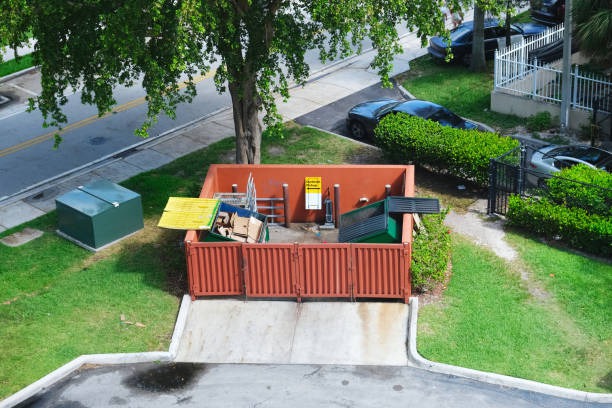Implementing Efficient Waste Practices for Small Businesses
Small businesses are the backbone of our economy, but managing waste efficiently often falls low on the priority list. However, implementing efficient waste practices can result in cost savings, improved brand reputation, and a healthier environment. This article will provide practical tips and strategies for managing waste effectively in a small business setting.
1. Start with a Waste Audit
Before jumping into solutions, it’s essential to understand your current waste situation. Conduct a waste audit to determine what types of waste your business produces and in what quantities. This will help you tailor waste management strategies specifically to your needs.
What is a Waste Audit?
A waste audit involves analyzing the waste your business produces over a specific period. The goal is to categorize and quantify each type of waste and identify areas for improvement.
Steps to Conduct a Waste Audit
-
Collect waste data: Gather waste for a designated period, such as a week.
-
Categorize waste: Separate waste into categories like paper, plastic, food, and general waste.
-
Measure waste: Weigh each category to determine the quantity.
-
Analyze results: Identify which areas of your business produce the most waste and why.
2. Reduce, Reuse, Recycle
The three Rs are more than just a catchy slogan; they’re a practical framework for effective waste management.
Reduce Waste
-
Streamline inventory: Only order necessary supplies to minimize waste.
-
Go paperless: Opt for digital documentation whenever possible.
Reuse Materials
-
Repurpose packaging: Use old boxes and packing materials for shipping.
-
Donate unused items: Give away surplus materials to charities or schools.
Recycle Waste
Collaborate with an excellent recycling depot near you to ensure recyclable materials are appropriately processed. This will not only divert waste from landfills but also instill a culture of sustainability within your business.
3. Engage Employees in Waste Reduction
Your team plays a critical role in successful waste management. Engaging your employees helps ensure everyone is on the same page and committed to sustainable practices.
Inclusion and Training
-
Conduct workshops: Educate your team about the importance of waste reduction and environmental sustainability.
-
Create a green team: Form a dedicated group of employees to lead waste management initiatives.
4. Optimize Waste Collection and Disposal
When it comes to waste collection and disposal, it’s about making the process as efficient and sustainable as possible.
Select the Right Bins
-
Color-coded bins: Use bins with different colors for different types of waste to make sorting easy.
-
Labels: Clearly label bins to avoid contamination.
Choose a Reliable Waste Service Provider
Partner with a company offering Victoria bin rental solutions to meet your disposal needs. This ensures that your waste is collected and disposed of in an environmentally friendly manner.
5. Leverage Technology for Waste Management
Technology has revolutionized how we manage waste, offering new efficiencies and insights.
Use Waste Tracking Software
-
Monitor waste levels: Track how much waste you produce over time.
-
Identify trends: Use data to identify areas for improvement.
Smart Waste Bins
-
Automated alerts: Invest in bins that alert you when they’re full.
-
Data collection: Monitor the types and quantities of waste collected.
6. Implement Waste Reduction Policies
Formal policies can institutionalize waste reduction efforts and ensure consistency across your operations.
Create a Green Business Policy
Develop a policy that outlines your commitment to sustainability and the specific waste reduction strategies your business will implement.
Encourage Supplier Sustainability
Work with your suppliers to prioritize sustainable materials and practices. This will not only help reduce your waste but also encourage broader industry change.
7. Monitor and Adjust Your Strategies
Waste management is not a one-time effort but an ongoing process.
Regularly Review Waste Practices
-
Monthly checks: Assess the effectiveness of your waste management practices monthly.
-
Adjust strategies: Make necessary adjustments based on new data and changing needs.
Feedback Loop
-
Encourage feedback: Involve employees in providing suggestions for improvement.
-
Create a culture of sustainability: Reinforce the importance of efficient waste practices regularly.
8. Consider Composting
Though not applicable to every business type, composting can be a fantastic way to manage organic waste.
Benefits of Composting
-
Reduces landfill waste: Diverts organic matter from landfills.
-
Creates useful end products: Generates compost that can be used for landscaping or gardening.
How to Start Composting
-
Choose a composting method: Decide between in-house composting or hiring an external provider.
-
Educate your team: Train employees on what can and cannot be composted.
9. Benefits of Efficient Waste Management
Implementing efficient waste practices offers numerous benefits to small businesses.
Cost Savings
Effective waste management can significantly reduce the costs associated with waste disposal and garner potential financial savings through recycling and repurposing.
Improved Reputation
Businesses committed to sustainability often enjoy a better reputation with customers. Word gets around, and customers appreciate companies that prioritize caring for the environment.
Environmental Impact
By minimizing waste, your business contributes to a more sustainable planet, aligning with global efforts to reduce environmental degradation. Putting it all together, by taking proactive steps in implementing efficient waste practices, small businesses can make a significant difference not just for themselves but for the community and planet at large.
Whether it’s partnering with bin rental services for greener waste disposal strategies, setting up collaborations with the best waste management company, or working with a recycling depot, sustainable waste management is a win-win situation.
Wrap Up
Implementing efficient waste practices offers small businesses significant benefits, including cost savings, enhanced reputation, and positive environmental impact. By conducting waste audits, engaging employees, optimizing waste collection, and leveraging technology, businesses can effectively manage waste and contribute to sustainability. Composting organic waste and collaborating with suppliers are valuable strategies. Ultimately, adopting sustainable waste management practices is a win-win, benefitting businesses, the community, and the planet. Prioritize sustainability for long-term success.



